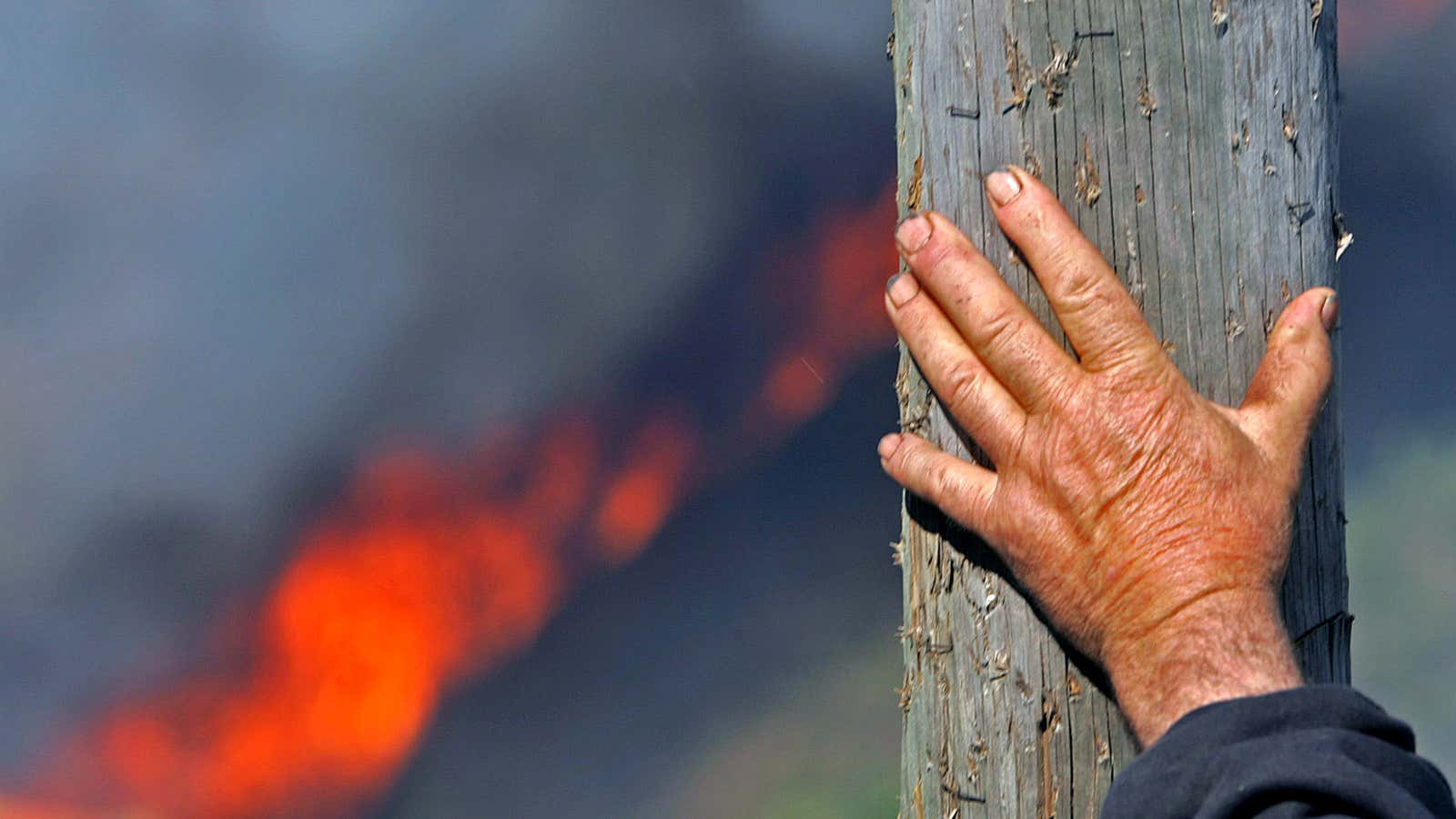The world is suffering from extreme weather.
Heatwaves have killed 50 in Canada and 80 in Japan, caused drought in Germany and Scandinavia, set record temperatures in Algeria, Morocco, and Oman, and left the UK looking brown from space. The heat has spurred wildfires that have claimed at least 80 lives in Greece, melted electrical wires in California, and forced Sweden to call for international help.
This is not normal. Weather is a localized phenomenon to which long-term climate trends contribute. The more greenhouse gases we put into the atmosphere, the warmer the climate gets and the more likely these extreme weather events become. Put another way, climate change adds fuel to the fire.
The world’s five hottest years on record are (in ranked order): 2016, 2015, 2017, 2014, and 2010. ”The sort of temperatures that are occurring now would’ve been a one-in-a-thousand occurrence in the 1950s,” Joanna Haigh, of the Grantham Institute for Climate Change, told the BBC. “Now, they are about a one-in-10 occurrence.”
The trouble is, the average person is unlikely to make the connection between climate change and weather events. Take the US, for example. Among the 127 segments run on the country’s TV networks about heatwaves this summer, only one mentioned the connection between climate change and extreme heat, according to a study published by Media Matters.
Legacy radio and print did a slightly better job, but even they struggled to ascertain how to mention climate change in the context of breaking-news events, such as the wildfires in Greece. That said, on Friday, research was published from a group of scientists that looked at seven weather stations in northern Europe and concluded climate change made these heatwaves twice as likely. It was only the 12th story on the BBC News global homepage—underneath “LeBron James ‘regrets’ giving son his name.”
Not so long ago the image of a polar bear on a melting iceberg was the symbol of climate change. Though it evoked sympathy, it also reinforced the idea that the impacts of climate change are physically distant. Over the last few years, however, extreme weather events have brought the impact much closer to home and increased public understanding of the risks, according to a 2017 study. Recent polls back up the claim, with more and more people accepting the link between human-caused climate change and the recent spate of weather-driven devastations.
But fear doesn’t motivate everyone. For some, the message is better delivered through finding common ground. In the end, whatever the means, it’s important we connect the dots on climate change. We aren’t going to find the solution to humanity’s greatest challenge without acknowledging the problem and its sheer scale.
This was published in the weekend edition of the Quartz Daily Brief, our news summary that’s tailored for morning delivery in Asia, Europe and Africa, the UK, or the Americas. Sign up for it here.
